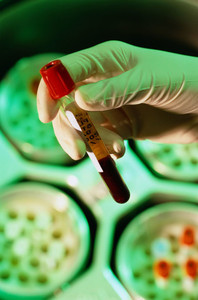At the 2008 World Congress of Pharmacy and Pharmaceutical Sciences held 29 August – 4 September 2008 in Basel, Switzerland, Mr Luis Enrique Morena Exebio of the National Institutes of Health (NIH) in Peru, presented a poster entitled ‘Investigation’s ethical aspects regarding pharmaceutical products bioavailability and bioequivalence in Latin American legislation’.
Bioavailability and bioequivalence norms in Latin America
Home/Conferences
|
Posted 03/03/2010
 0
Post your comment
0
Post your comment

Mr Morena Exebio and colleagues wanted to update information related to countries that have norms on bioequivalence (BE) and bioavailability (BA) and to select ethical aspects that must guide the development of these BA/BE studies from these norms.
They classified the Latin American countries in four groups based on the available information of an Experts Meeting on Bioequivalence of Medicines promoted by the Pan-American Health Organization (PAHO) held in Venezuela from 13–15 January 1999. They then sent a survey to Latin American medicines regulatory agencies, asking e.g.:
1. Are there in your country norms that demand BA/BE tests for medicines?
2. Do BA/BE norms refer to an International Code or a Guideline on Ethics?
3. What institutions accomplish BA/BE studies?
4. What is the average cost or time to accomplish a BA/BE study?
5. What do you think about the perspective of BA/BE studies in your country?
6. Are you optimistic or pessimistic about BA/BE studies?
7. Where will the BA/BE studies be in 5–10 years?
The answers were evaluated, giving a new Latin America BA/BE classification:
- Group 1 (effective norms): Argentina, Brazil, and Mexico (25%);
- Group 2 (norms without application): Columbia, Venezuela, Costa Rica, and Chile (33%);
- Group 3 (projected norms): Peru (9%);
- Group 4 (without norms): Bolivia, Ecuador, Paraguay, and Uruguay (33%).
The authors evaluated and compared norms with ethical aspects as mentioned in the Council for International Organizations of Medical Sciences (CIOMS) Guidelines 2002 and Helsinki Declaration. The analysis of ethical orientation in BA/BE norms considered issues such as an ethic committee, Helsinki/CIOMS Guidelines, informed consent, national codes of ethics or without ethical guidelines. They found specific ethical aspects were not mentioned in the norms, e.g. the right to treatment and compensation for subjects who become ill due to treatment; special consideration for women to avoid pregnancy with high-risk drugs; and monitoring subjects’ health during studies.
Mr Morena Exebio observed progress in the BE/BA norms in several Latin American countries; the inclusion of a variety of aspects related to ethics was similar to international standards (e.g. independent revision by an ethic committee, informed consent and respect for subjects’ rights according to Helsinki’s Declaration); ethical aspects were mentioned in an unequal proportion in the BE/BA norms; the Latin American countries were interested in implementing BE/BA studies to warrant the quality of medicines based on the right to health and equality. The authors concluded that countries preparing BE/BA norms must consider both technical and ethical aspects.
Reference:
Luis Enrique Morena Exebio. Investigation’s ethical aspects regarding pharmaceutical products bioavailability and bioequivalence in Latin American legislation. Poster at 2008 World Congress of Pharmacy and pharmaceutical Sciences at Basel, Switzerland. 29 August–4 September 2008.
Guidelines
US guidance to remove biosimilar comparative efficacy studies
New guidance for biologicals in Pakistan and Hong Kong’s independent drug regulatory authority
Policies & Legislation
EU accepts results from FDA GMP inspections for sites outside the US
WHO to remove animal tests and establish 17 reference standards for biologicals
ASBM/GaBI 2024 webinar on BIOSIMILAR RED TAPE ELIMINATION ACT (S2305)

Home/Conferences Posted 05/11/2024
ASBM/GaBI 2023 webinar on INTERCHANGEABILITY DESIGNATION FOR BIOSIMILARS

Home/Conferences Posted 12/12/2023
The best selling biotechnology drugs of 2008: the next biosimilars targets








Post your comment